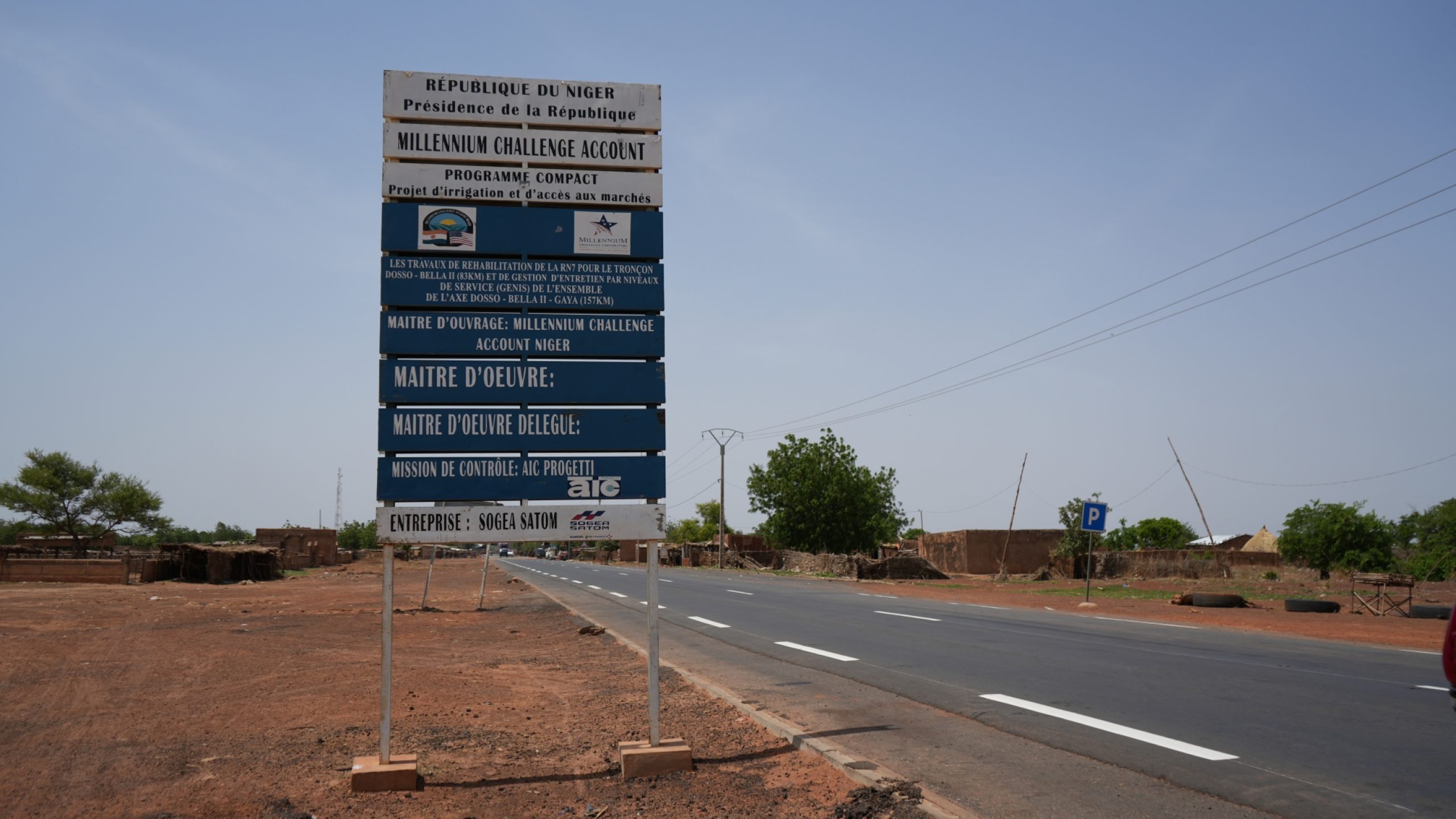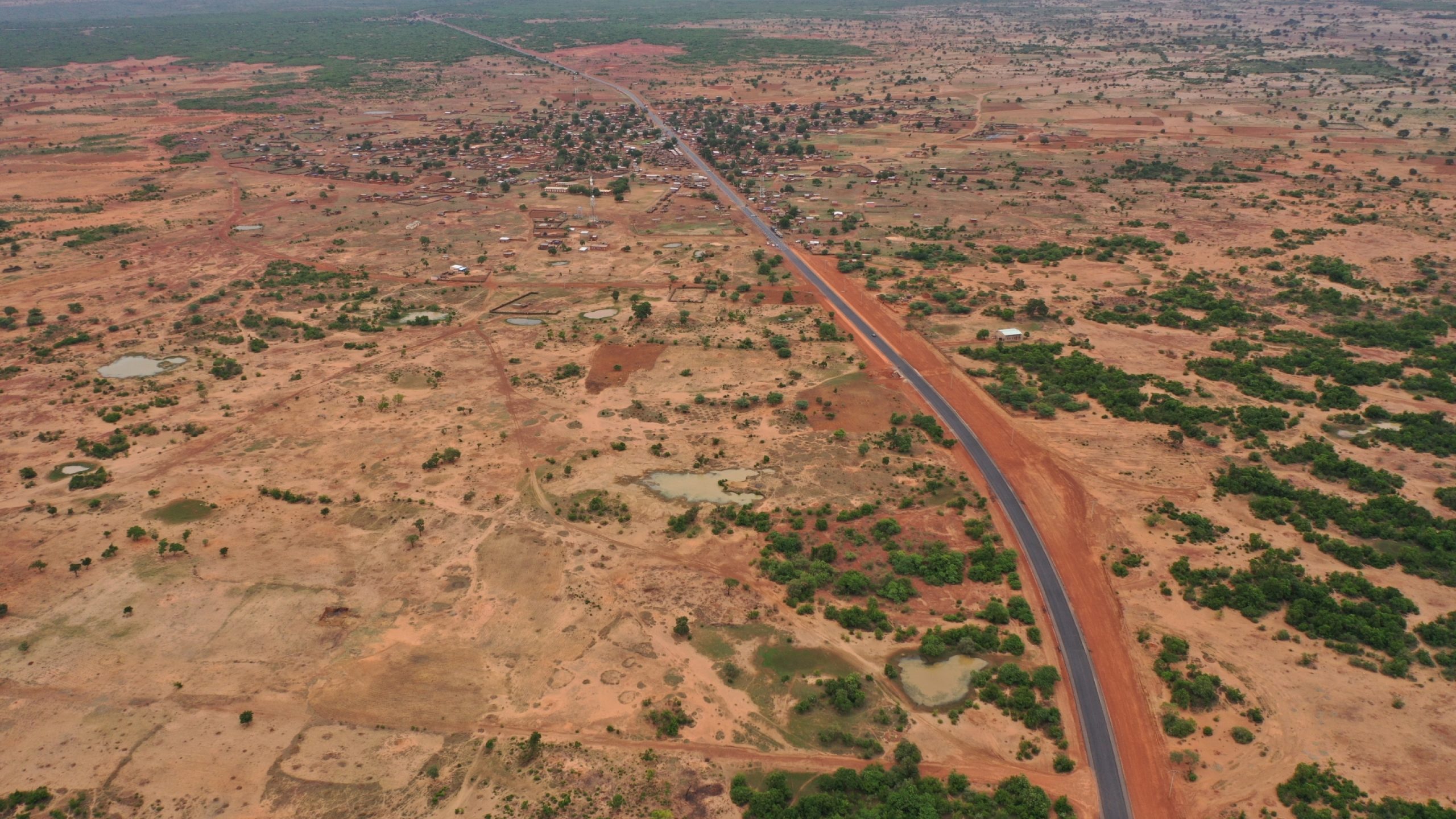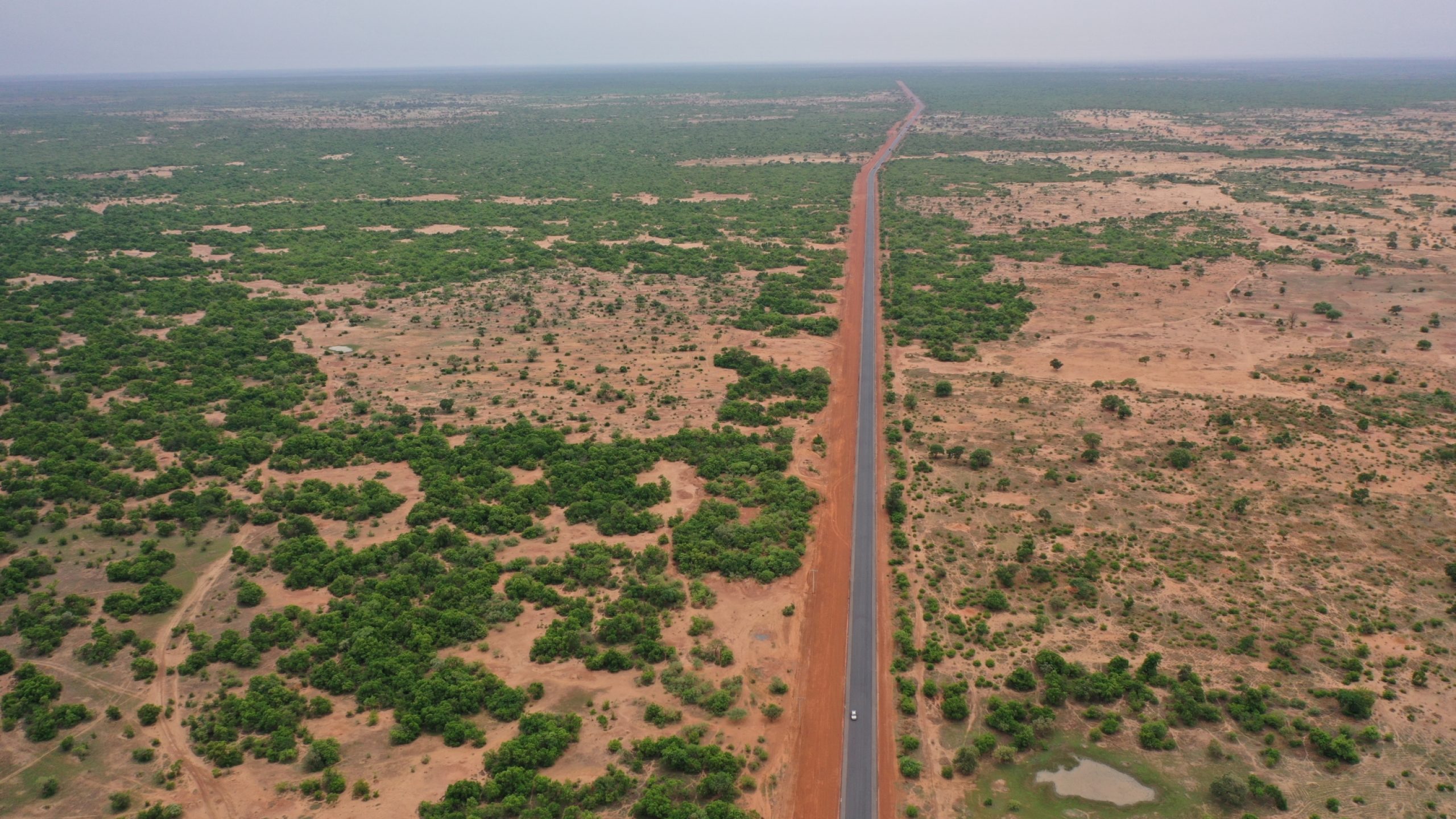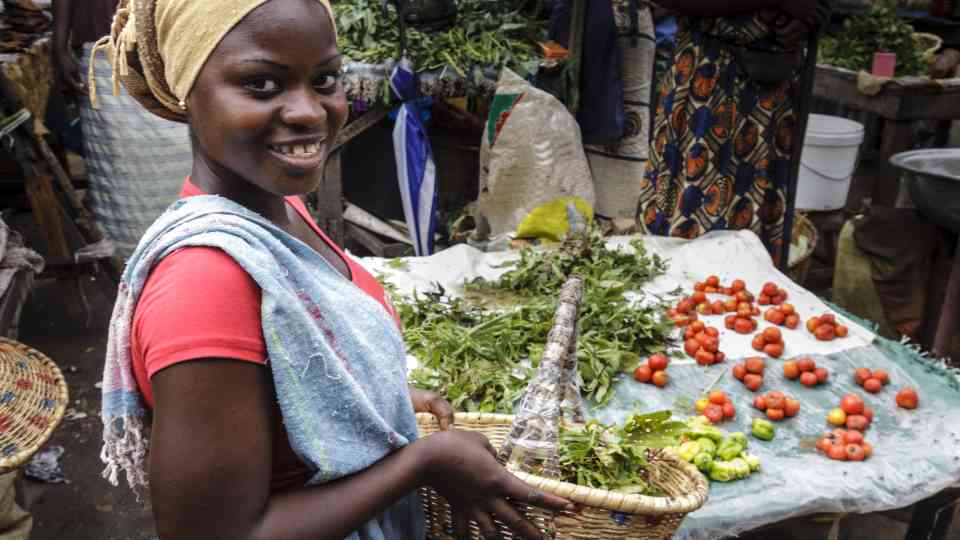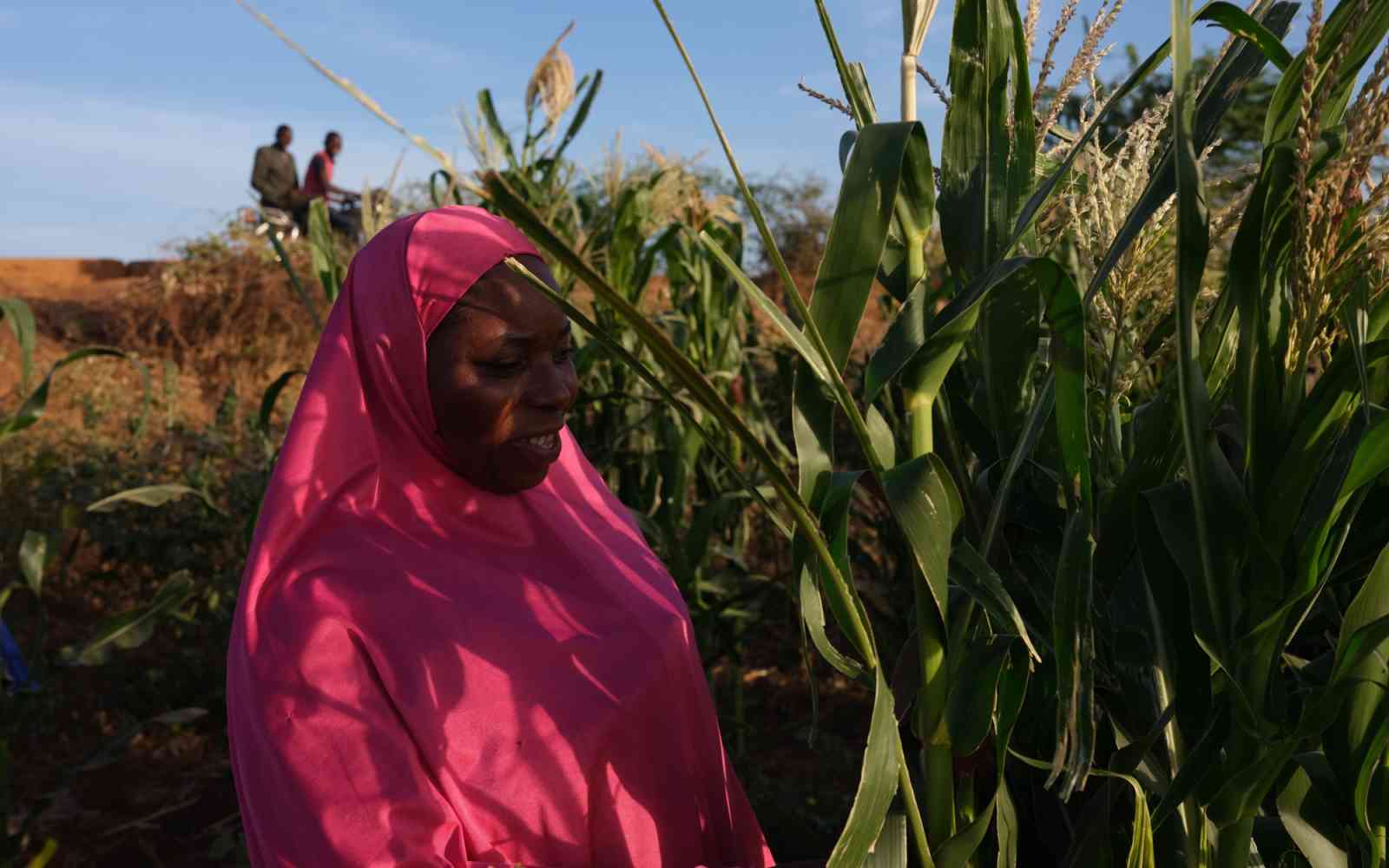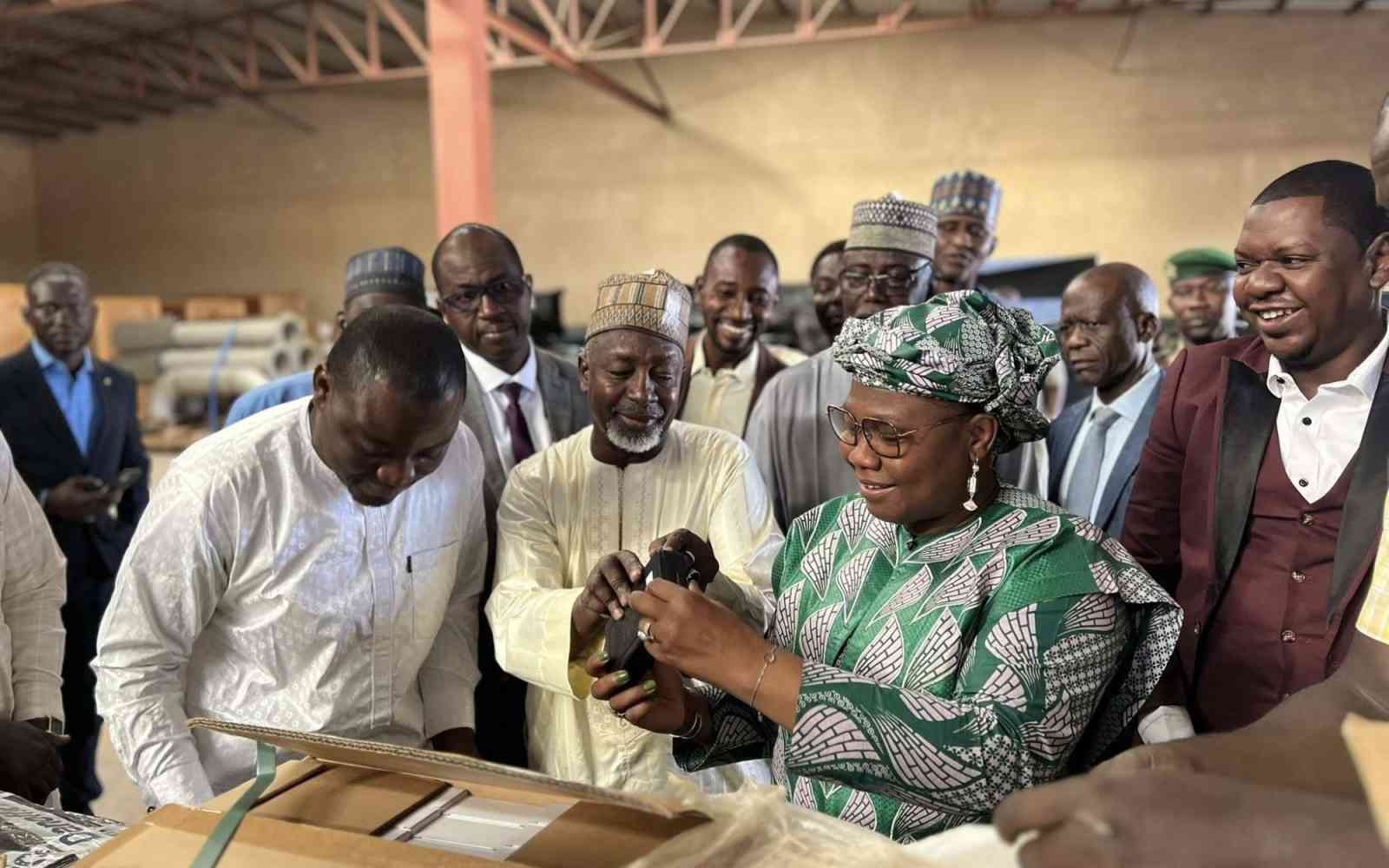The United Nations Office for Project Services (UNOPS)

Improving road conditions and access to markets in Niger
Niger is dependent on its road network to connect communities and to support economic activity. But poor road conditions make travel difficult, slow and dangerous.
In 2021, more than 20,000 people were killed or injured on Nigerien roads. With no regular rail service and limited domestic air services, Nigeriens have little choice but to use often dangerous roads to access different areas of the country.
To improve road safety and increase access to markets, UNOPS provided project management and technical assistance for the rehabilitation of more than 300 kilometres of roads in Niger as part of the Irrigation and Market Access Project, funded by the Millennium Challenge Corporation and delivered through the Millennium Challenge Account-Niger.
Issoufou Ide Hawidabou is just one of many people who have benefitted from the rehabilitations. A pharmacist in Bella (located in the Dosso region), his business is located just off the RN7, a national highway that was in need of rehabilitation.
Before, the poor road conditions often made for a treacherous journey.

People on motorcycles fell into holes in the road before they arrived here at the pharmacy.
The condition of the road also impacted Issoufou's ability to stock his pharmacy – and to provide much-needed medication to his customers.
Orders for medicine supplies took up to nine hours to be delivered. And the rainy season made travel to the pharmacy even more difficult, with flooded roads often delaying and preventing both the medicine and his customers from reaching the pharmacy.
After the highway was rehabilitated, the travel time from local villages to the pharmacy decreased drastically and the delivery time for medication was cut in half.

Now Issoufou's customers can more easily and quickly access the pharmacy, allowing Issoufou to treat more people faster than ever before.


In the village of Régi-Pharé, located just off the rehabilitated RN7, Djamilla Hassane knows first-hand that the road conditions can mean the difference between celebrating life – and mourning death. Djamilla's pregnant sister faced difficulties getting medical assistance when she went into labour due to the poor road conditions.
“I remember when my older sister was evacuated to Gaya [Hospital],” says Djamilla. “The road was bad so the ambulance could not come. We had to rent another vehicle to take her to the hospital.”
The journey was excruciatingly slow, bumpy and painful for her sister. Ultimately, she had to have a caesarean section, delivering a healthy daughter named Roukaiya.
The memory of that harrowing journey has lived on in the minds of everyone in the village.

When the road was not rehabilitated, we were afraid to travel. Now the road has been rehabilitated. It is good. In case of illness, the ambulance can come and evacuate you quickly.
In Margou Santche, the poor condition of the road leading to the market town made driving difficult.
"It used to take us several hours to get to the market to sell our doughnuts," says Aissa Zarafi, who has been working in the town's market for more than 30 years.
Aissa herself would often be stranded in Margou Santche, unable to get home to Dosso as the transportation she depended on often got stuck in holes in the road and frequently broke down.
"The road condition forced me to sleep on the spot, and my children were left alone at home," she explains.
As the road conditions worsened over the years, fewer and fewer buses went to Margou Santche, meaning fewer and fewer passengers came through the town. The number of customers buying doughnuts from Aissa collapsed. But the newly rehabilitated road has brought with it a smoother, faster trip – and more customers than ever before.

Now in less than an hour or two, we are there [in Margou Santche]. The road is excellent now, we don't spend the night here anymore.
About the programme
Delivered through the Millennium Challenge Account-Niger, the $442 million programme is funded by the Millennium Challenge Corporation. MCA-Niger is a special entity set up by the Nigerien government to manage the funds and is supported by UNOPS, which is providing technical and administrative assistance for the programme.
Benefitting 4 million people in the regions of Dosso, Maradi, Tahoua and Tillabéri, the six-year programme comprises two projects that aim to reduce poverty and promote economic growth.
The Irrigation and Market Access Project rehabilitated and constructed new and existing irrigation systems, increasing irrigation capacity to 3,140 hectares of land.
To create better access to markets, more than 300 kilometres of roads have been rehabilitated through the project while sectoral reforms have helped improve land and natural resource management, road maintenance and the availability of affordable quality fertilizers. Training for farmers has helped ensure knowledge transfer of marketing practices and of irrigation infrastructure maintenance.
The Climate-Resilient Communities Project has provided support to pastoral activities through better animal disease control, the upgrading of water infrastructure and pasture along transhumance corridors, and the modernization of livestock market infrastructure, benefiting over 3.4 million people.
The project has also promoted climate-resilient agriculture through grants and training activities to more than 300,000 households.







